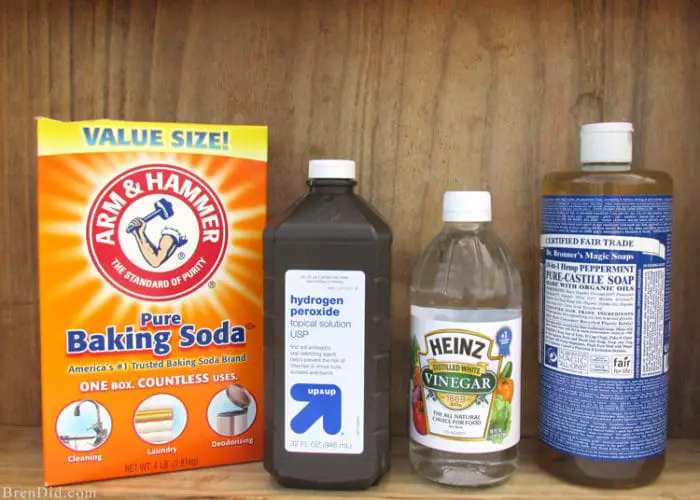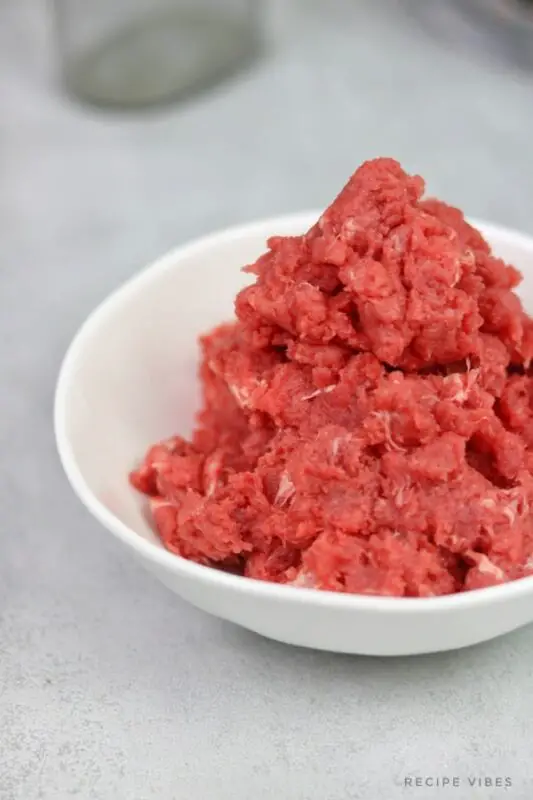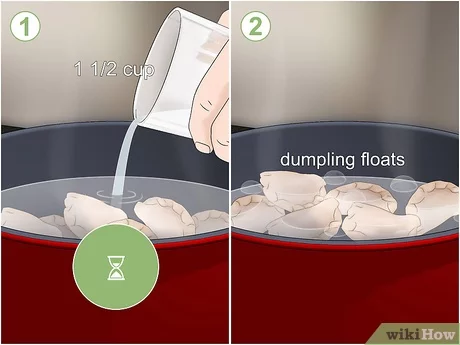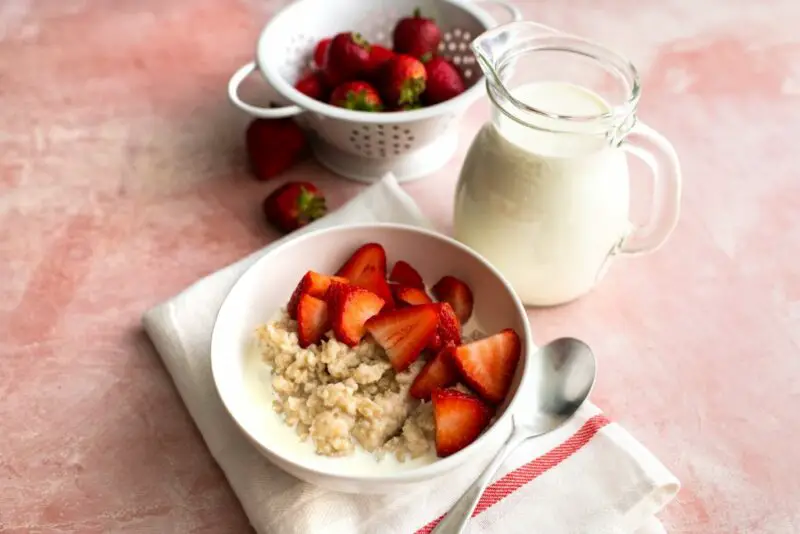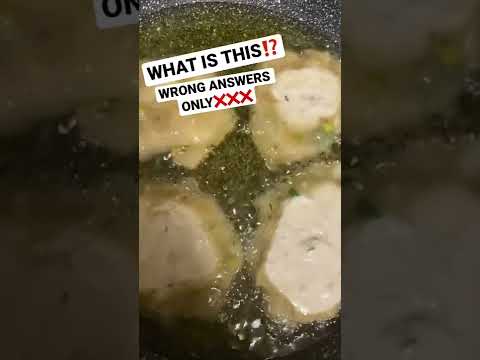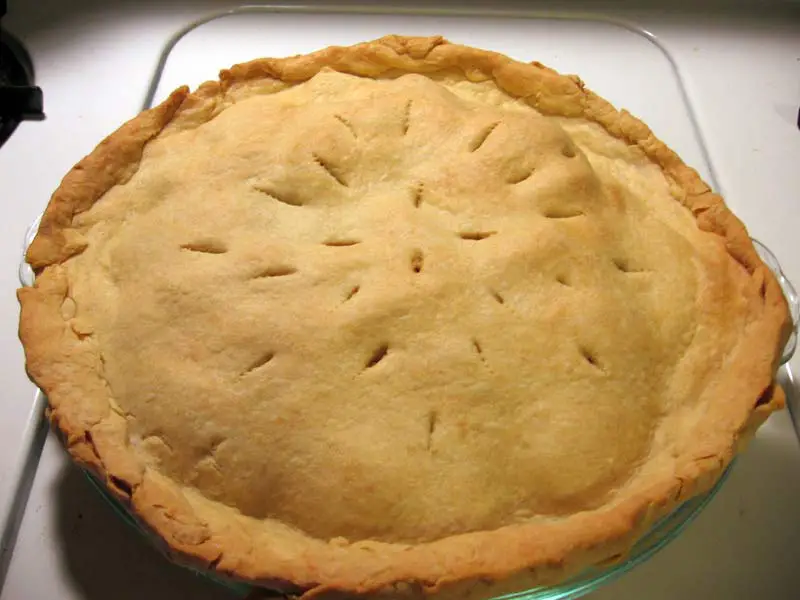Cleaning and DIY projects have become very popular in recent years, and many people like to mix different cleaning agents to get the job done faster. But not all products can be mixed together, and doing so can be dangerous. In this article, we’ll cover the basics of mixing vinegar, baking soda, and bleach together, and answer the ultimate question – is it safe?
## What Happens When You Mix Them Together?
If you mix vinegar, baking soda, and bleach together, you will get a reaction that produces chlorine gas. Chlorine gas is a toxic gas that can cause severe respiratory problems or other health issues.
Vinegar is an acid, while baking soda is a base. Bleach contains sodium hypochlorite. Mixing vinegar and baking soda creates carbon dioxide gas, which can cause pressure in a closed container. The bubbles of carbon dioxide produced by this mixture are harmless unless you try to contain them.
Bleach reacts with both vinegar and baking soda, creating toxic fumes like chloramine and chlorine gas.
Overall, there are no benefits to mixing these household cleaning agents together. It’s safer to keep them separate.
## Health Risks of Mixing Vinegar, Baking Soda & Bleach
Mixing vinegar and bleach creates chlorine gas that can irritate the eyes, nose, throat, lungs causing wheezing chest pain or paleness of the skin. If someone inhales too much chlorine gas, it could potentially lead to death.
Mixing baking soda and bleach can produce chloramine gas that can cause shortness of breath and chest pain. If someone inhales too much chloramine gas, it may lead to coughing or pneumonia-like symptoms.
Using these combinations may expose individuals to higher levels of chemicals which harm health conditions if inhaled or swallowed accidentally.
It’s essential to know that household cleaning agents must be used with noticeable precautions as they are typically dangerous when exposed to heat or sunlight.
## What Are the Alternatives to Mixing These Household Cleaning Agents Together?
While putting vinegar, baking soda and bleach together may seem like a quick fix, there are safer ways to clean our homes without those harsh chemicals. There are various non-toxic cleaners that can do the job in a safer way and still give your home that clean environment you crave.
Effective and Safe Cleaning Methods
– Water – You can make use of hot water to clean dirty surfaces
– Borax – A natural cleaner that has been around for years with great cleaning power
– Castile soap – It works as an excellent all-purpose cleaner on most surfaces
– Hydrogen peroxide – A natural oxidizer that cleans surfaces well and disinfects too
– Tea tree oil – A potent antimicrobial oil
Using Natural Cleaning Remedies
– Lemon juice – An effective way to remove stains, as well as kill germs.
– White vinegar – It can be used to eliminate odors, dissolve grease, and remove stains.
– Baking soda – This chemical compound is one of the best alternatives for multi-surface cleaners when people consider eco-friendly or non-toxic choices.
## Safety Precautions in Cleaning Your Combos
Before mixing any cleaning agents, it’s essential to take precautions to prevent accidents or inhalation of toxic fumes:
Necessary Precautions before You Mix Anything at Home for Cleaning
– Always read the labels before using cleaning agents.
– Provide proper ventilation before cleaning an area with multiple products.
– Wear protective gear/apron/gloves/overalls/mask when mixing anything at home.
– Never mix bleach with any acids like vinegar or ammonia products.
Cleaning Combos That Are Safe To Mix
It is important to note that while vinegar, baking soda, and bleach should not be mixed together under any circumstances; many cleaning combos are safe to mix.
Cleaning combos that are safe to mix include:
– Borax and vinegar
– Baking soda and vinegar
– Baking soda and hydrogen peroxide
### Safety Protocols for Each Agent
#### For Vinegar:
Vinegar is acidic, and it’s essential to dilute it when using it to clean surfaces.
How to Safely Dilute Vinegar for Cleaning?
– Combine one part vinegar with three parts water.
– Always avoid using vinegar on granite countertops or any natural stone surface since the acid in the vinegar may etch the surface, causing permanent damage.
Does Vinegar Contaminate Food or Drinks?
Vinegar is safe to consume, especially when diluted with a lot of water. Nonetheless, cleaning equipment is different: when you use cleaning agents to prepare food surfaces, ensure you rinse sufficiently with hot water after cleaning.
#### For Baking Soda:
Baking soda has a high pH level, making it effective at removing stains from a variety of surfaces. But it’s essential to take care when using baking soda as we don’t want it to cause any harm.
How To Safely Use Baking Soda in Homemade Cleaners?
– Do not use baking soda on polished stone surfaces like marble or granite.
– Avoid ingesting large amounts of baking soda because it can lead to stomach upsets.
– Make sure you do not inhale the powder form as it may lead to coughing or wheezing.
Are There Any Risks When Using Baking Soda Regularly?
While there are no significant health risks associated with regular use of baking soda, people should always measure out the amount required accurately. Overuse might lead to skin irritations for those who have sensitive skin types.
#### For Bleach:
Bleach is highly effective in removing stubborn stains and disinfecting surfaces. We must follow precautions before handling bleach.
Cautionary Measures When Using Bleach
– Wear protective gloves when handling bleach.
– Ensure the area is well ventilated.
– Never mix bleach with ammonia or any other acid such as vinegar.
The Best Way You Can Store Bleach
Always store bleach in a cool dry place, away from heat, sources of light, and out of reach of children. It’s essential to keep bleach away from direct sunlight and carefully measure out the required amount each time.
## Benefits of Homemade Cleaning Products Without Toxic Mixtures
Using green products for health and environmental benefits – Many commercial cleaning agents emit harmful chemicals into our homes that are hazardous to our health. Using green alternatives can prevent unnecessary exposure to these chemicals.
Cost-effective homemade alternatives – Making your cleaning solutions with natural ingredients can save you money in the long term, they are often cheaper than commercial cleaning products.
## Conclusion
Mixing vinegar, baking soda, and bleach together is not recommended. The chemical reactions that occur can release toxic gas and be harmful to people’s health. Instead, use non-toxic cleaners that can do the job just as well without exposing yourself or others to harmful chemicals.
Remember always to read labels first before using any household cleaning agent. Protect yourself properly and safely use precautions before mixing anything at home.
In conclusion, it is vital to prioritize safety when using cleaning agents in our homes. With the information in this article referring to vinegar, baking soda, and bleach combos as well as safer alternatives for each agent; you should feel more confident while cleaning your home next time.
Frequently Asked Questions
Can a mixture of vinegar, baking soda, and bleach be harmful?
Mixing these three substances can produce toxic fumes that are harmful when inhaled and can cause serious health issues. It is recommended to avoid mixing these chemicals together and to use them separately.
What happens when you mix vinegar, baking soda, and bleach?
When mixed together, vinegar, baking soda, and bleach react chemically and produce chlorine gas. Chlorine gas is dangerous and can cause severe respiratory problems even at low concentrations.
Is it safe to mix vinegar and baking soda?
Mixing vinegar and baking soda can be safe when used for cleaning purposes. When mixed together, they create a bubbly reaction that can help remove stains and grime from surfaces. However, it is important not to mix them in large quantities or with other chemicals.
Why should I avoid mixing vinegar, baking soda, and bleach?
Mixing these chemicals can produce a hazardous chemical reaction that can lead to serious health problems. Inhaling the fumes can cause respiratory damage, eye irritation, and other symptoms. It is important to keep these chemicals separate and use them safely according to their individual instructions.
